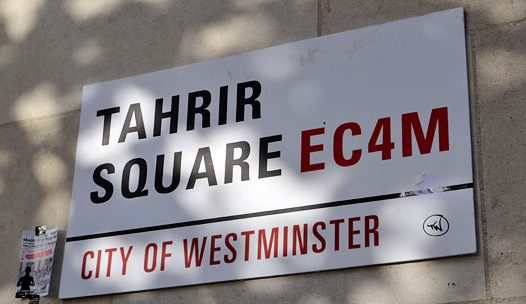Mark W

How would you define Occupy?
The Occupy Wall Street movement was part of the global wave of protest in 2011. It was a mixture of class politics, anarchist organising principles and communitarian practices. It was a leaderless self-replicating movement that physically reclaimed urban space in order to confront the western world’s financial centres.
What were you doing before Occupy?
I was following the Arab Spring and the 15M movement from my home in Leeds. I didn’t have any access to a political culture but I was becoming increasingly inspired by the people’s movements around the world.
Why did you participate in Occupy?
I had been following Occupy Wall Street for several weeks. I didn’t understand much about it. But I noticed an Occupy event in London so I got on the next bus to London.
What impact did Occupy have on your personal life?
Occupy altered the course of my life entirely. I moved cities, I changed my job, I made a new set of friends. Occupy was a whirlwind political education. In a few weeks I had resisted police attacks, taken over office buildings, facilitated meetings of hundreds of people.
Occupy’s impact on me is still ongoing in the sense that my political life now is built on those experiences and understandings. Occupy radicalised me in many ways. It also gave me hope by showing me what is possible and what empowered political action can feel like.
Did Occupy change the ways you think, feel and interact with the world? If yes, how so? What do you feel that you learned (or unlearned) that was unique to Occupy?
There is too much to put down here. I went into Occupy as a kind of armchair anarchist. Occupy forced me to confront every conceivable problem from class, race, gender and sexuality to the media, internal conflict, personal betrayal to capitalism and the state.
I think Occupy has in essence deepened my political world. I think I see more cause for hope than many people. But at the same time I see the huge difficulties that can’t be avoided in mass movement politics.
What impact do you think Occupy has had on the economic and political situation?
I think the economic and political systems have remained almost entirely intact. Though Occupy seriously damaged their perceived legitimacy. I think Occupy’s impact is better measured by popular attitudes. As neo-liberal capitalism continues to self-destruct there is very little in the way of a visionary political response. I think Occupy inspired people all over the world to look to each other and to the future.
Given the current political and economic situation, what is your view on what people can do to bring long lasting systemic change?
I think the “powers that be” are extremely vulnerable. I think more waves of protest will happen. If we can learn from moments like Occupy, if we can understand where things went wrong and if we can build a vision that inspires and convinces us it will inspire and convince others. I think we have to build a new system from below.
That’s the only hope I can see.
Before Occupy, were you involved in activities related to the reasons why you participated in Occupy? (Activist groups, campaign groups, media platforms, volunteering, research, etc)
No
Are you still involved in activities related to the reasons why you participated in Occupy? (Activist groups, campaign groups, media platforms, volunteering, research, etc)
Yes
Which ones?
Black Lives Matter UK, Disabled People Against Cuts, The Radical Assembly, Basic Income UK.
Are you still actively working or engaged with people that you met through Occupy?
Yes
What kind of activities are you doing together?
We organise political action, we support grassroots movement and we work to educate each other politically.